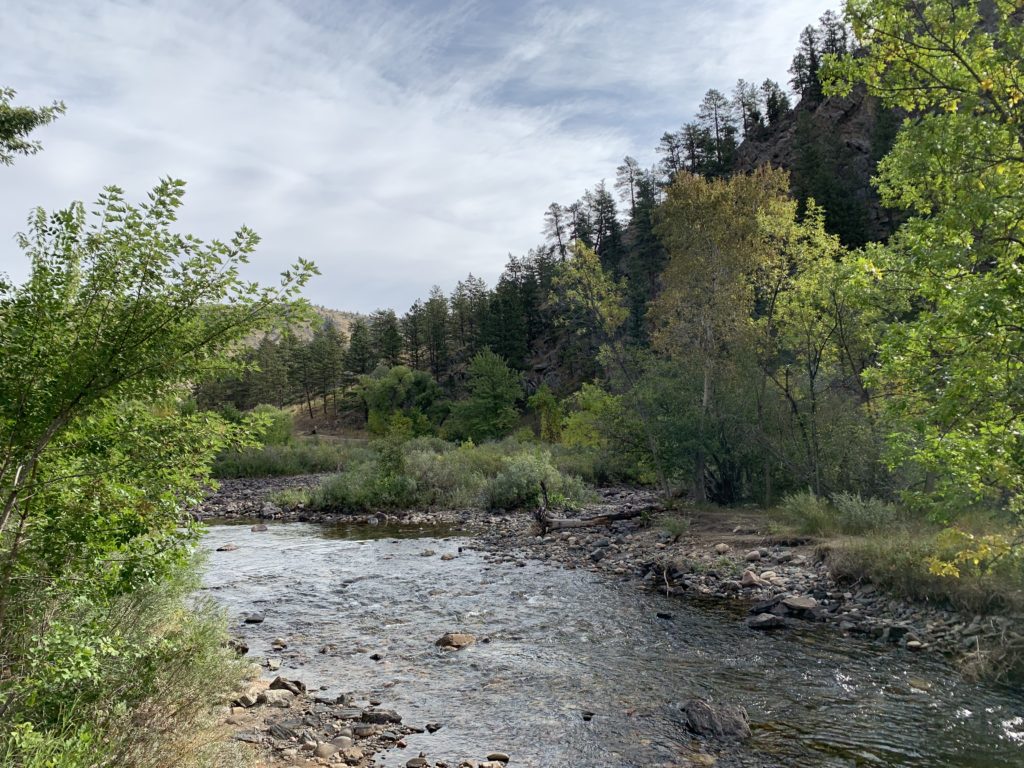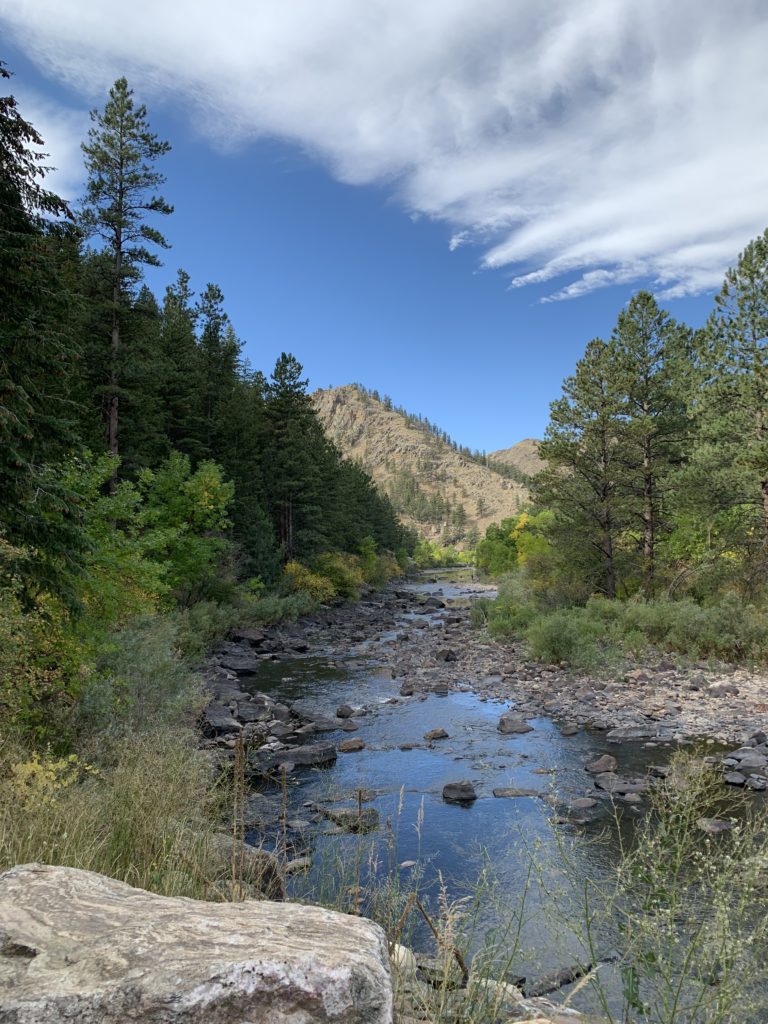
When it rains, all of the areas that divert that water into a single source (for example, into a river) form a watershed. Hurray, someone finally explained that to me!
This weekend, the Coalition for the Poudre River Watershed hosted a Fire Ecology Tour, yet another in a long line of citizen-friendly science events that seem to be constantly on offer in this area.
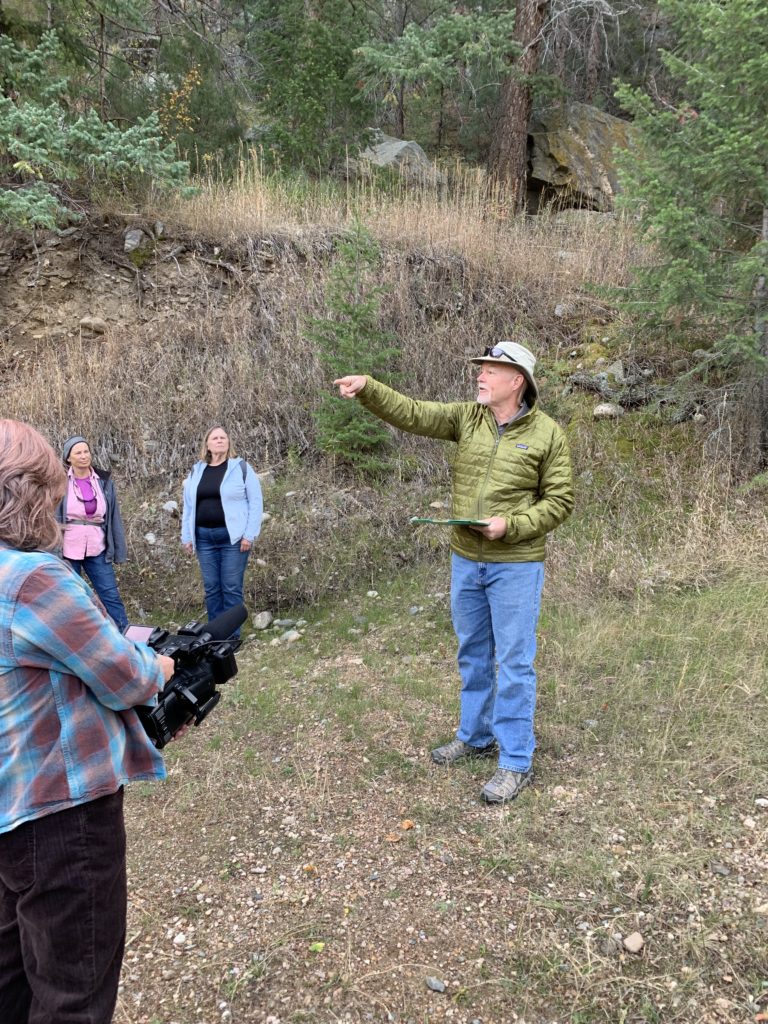
This free tour took place in Fort Collins’ Gateway Natural Area and featured four wonderful guest speakers with different perspectives on the local ecology and the various ways that fire can impact the watershed, both positively and negatively. (Mostly positively. The negatives only seem to crop up when humans are involved — streets wash out, houses burn, people are injured or killed.)
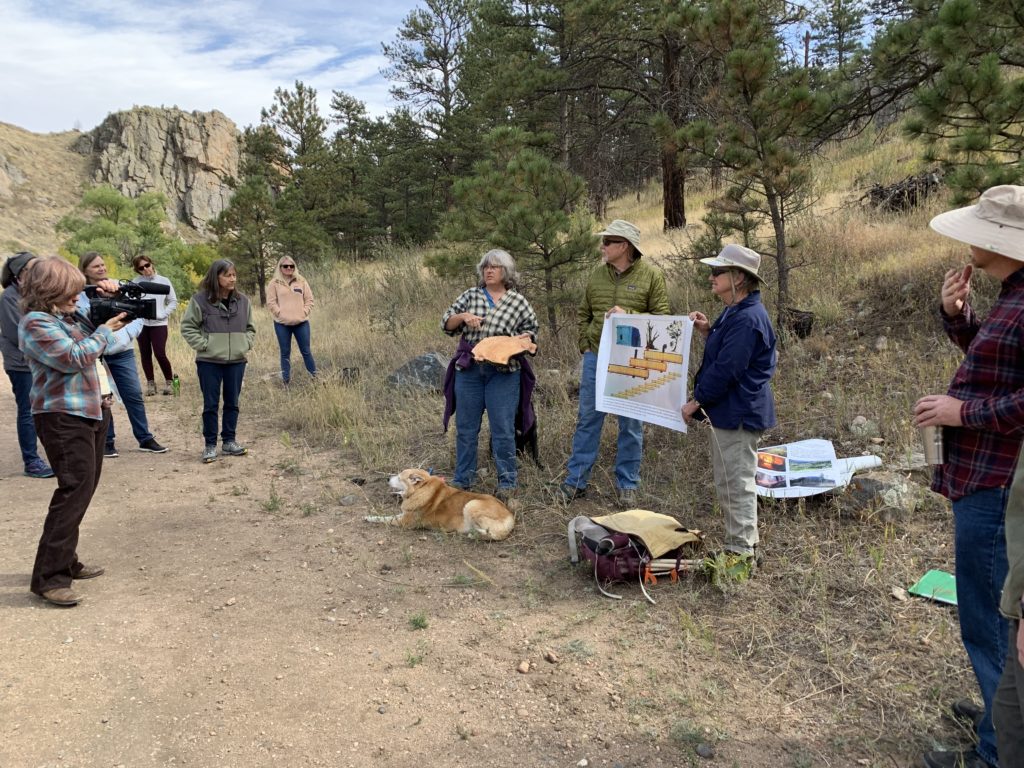
I took something away from each of the speakers, but it was Laurie Huckaby who most captivated me. Just a few of her ideas which caught my ear:
- Through a method called dendrochronology, scientists can link tree rings of various ages to read their way into past;
- Animals love to eat the shrubs that grow back immediately following a wildfire; scientists have evidence that Native Americans intentionally set fire in the foothills so that when they returned a season later, wildlife would have been attracted to the area;
- The cones of a lodgepole pine are coated in a special resin that only releases after a short, hot fire; once the fire has passed the lodgepoles release tens of thousands of seeds at once;
- In the early 1900s, America imported the idea of forestry from Germany, but their principles don’t exactly work with our ecology, and we’re still trying to undo the damage.
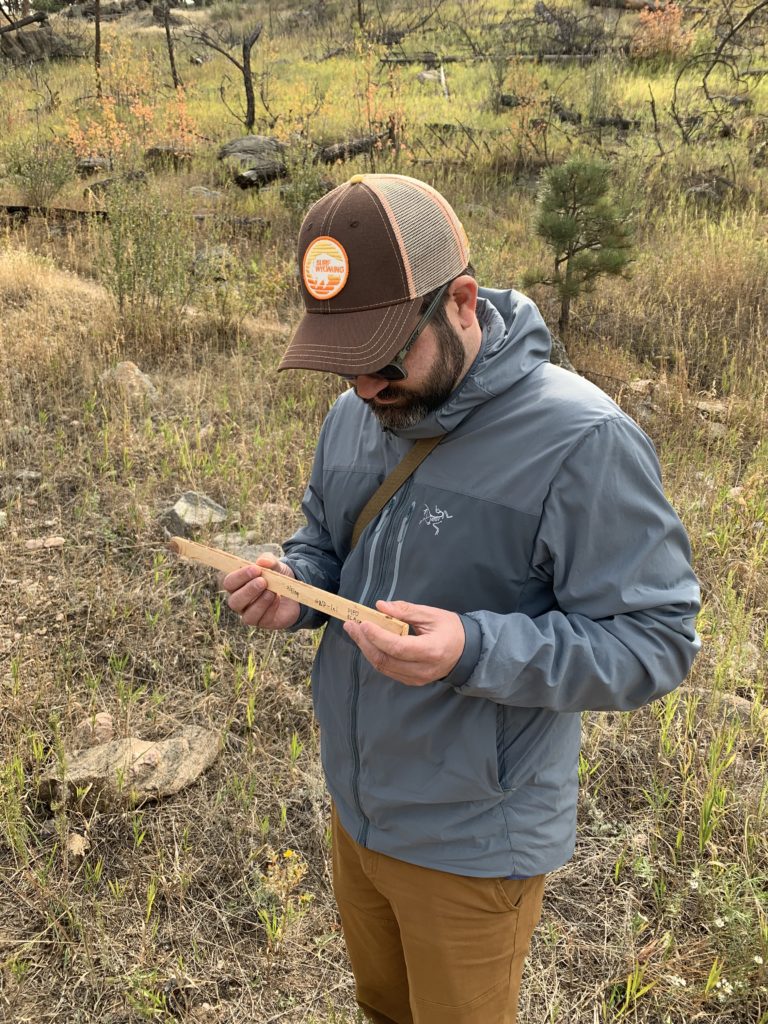
Above: Dan checking out one of Laurie’s pencil-shaped core samples (adhered to a larger piece of wood), used for dendrochronology.
Below: Linda inspecting the fire scars on a tree ring sample.
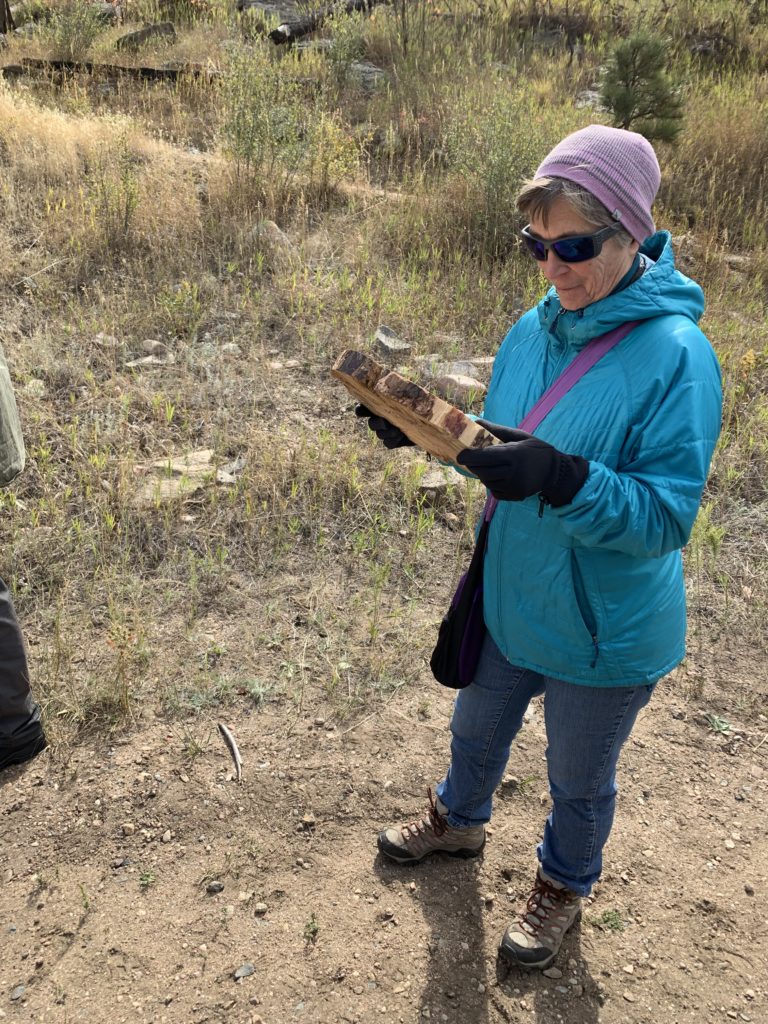
I know I beat this drum often, but I highly recommend taking advantage of these types of tours, pub talks, and more. These events — often free or offered at a low cost, and designed with non-scientists in mind — help me to feel more engaged with my city, with my local natural areas, and with similarly-minded, curious people.
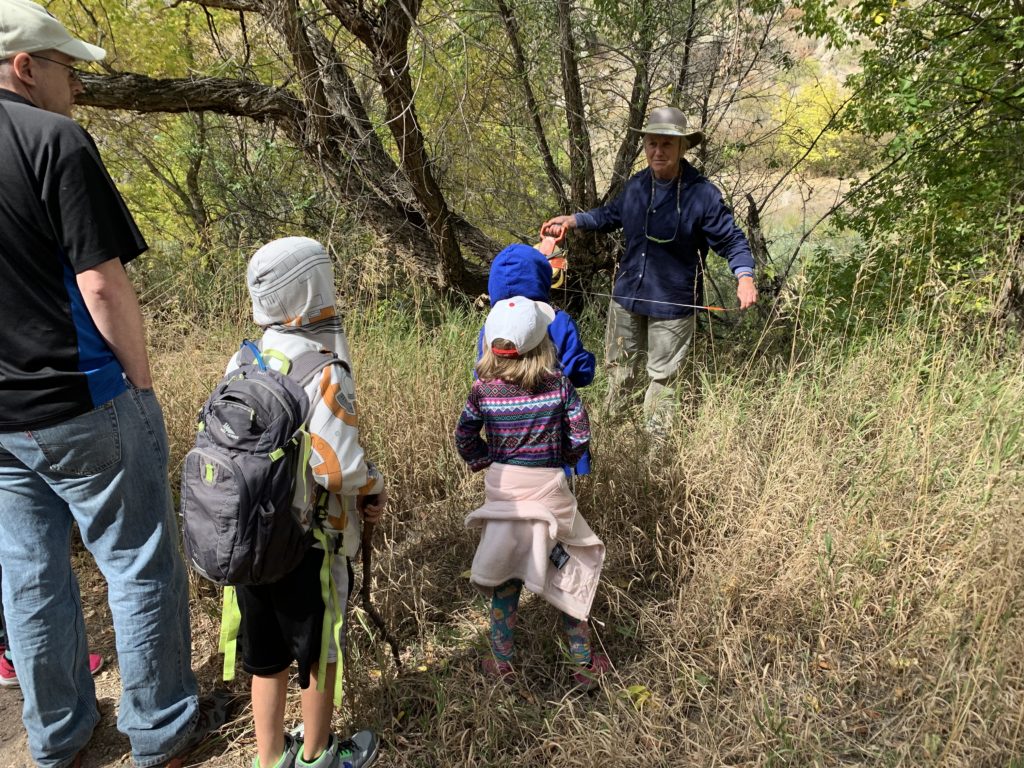
Thank you again to the Coalition for the Poudre River Watershed (and to their program manager, my lovely neighbor Hally) for this opportunity and for the great work that you do in our community.
